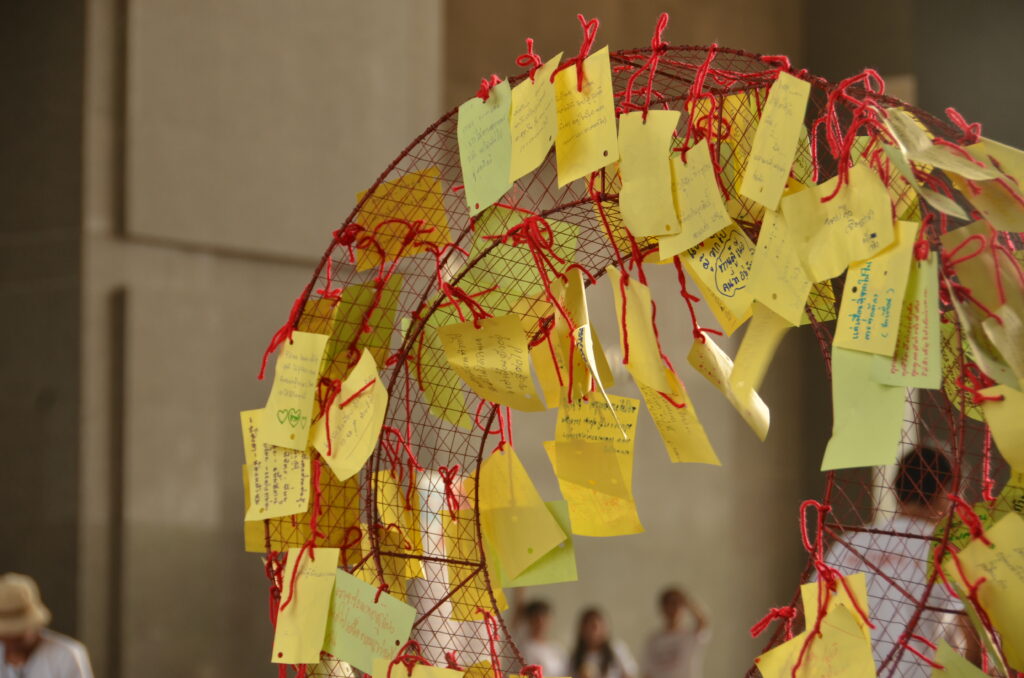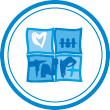Thai Network of People Living with HIV/AIDS (TNP+)
“Starting as a Group….Growing into a Network”

In1995-1996, people living with HIV/AIDS (PHAs) in Thailand started coming together to form support groups. The key factor that led them to form these groups was that they faced discrimination and the public lacked understanding about HIV/AIDS. Hence, the initial purpose of forming PHA groups was the need for a place where they could meet to share common experiences and problems and to give each other moral support. At that time there were groups in the upper north region and in Bangkok. The International Conference of People Living with HIV/AIDS held in Chiang Mai in 1995 was also a factor that encouraged more PHA in many parts of Thailand to form groups. These later become the PHA network. Additionally, some non-governmental organizations and governmental organizations also provided support for PHAs to form groups.
Initially, most activities of the PHA groups were focused on providing help and support to group members. The activities included monthly meetings to provide opportunities for group members to meet with friends and to share up to date information. They also provided home visits to support members if there were any problems, economic support for those in need, and funds for the education of children affected by HIV/AIDS. Later, the PHA groups expanded their services and became resource people who provided information on HIV/AIDS in order for people in the community to have more awareness of the problems facing PHA and to enable them to participate in solving HIV/ AIDS problems.
After participating in these activities for some time, many groups became aware that their current way of working was unable to satisfactorily address the existing problems. They found that many group members had not yet received appropriate treatment and human rights violations against PHAs and children affected by HIV/AIDS were still commonplace. In addition, the public’s knowledge on HIV/AIDS was not so accurate. Hence, PHA groups from different areas started to meet up to share and learn new ways of working. Bringing together PHA groups from different areas had finally created a network at a provincial and a regional level and comprised PHAs working on HIV/AIDS and advocacy issues.
On 8-10th October 1997, the first meeting of PHA groups from all parts of the country took place at the Royal Hotel in Bangkok and was known as the Assembly of Thai PHAs. This meeting was recognized as the day that the Thai Network of People Living with HIV/AIDS (TNP+) was first established. There were 3 sub- networks or regional networks established; one in the upper north region, one in the central region and one in the north-east region. Each network set up working goals and a work plan and elected a committee to serve as a working group to address HIV/AIDS problems in each region. However, they had not yet devised a common strategy for working at a national policy level.
In 1999, the 2nd National TNP+ Assembly was held in Nong Khai province. Group leaders from 6 regions participated in the assembly comprising the upper north, lower north, north-east, central, east and south,. At that time, the southern regional network had not yet been established but representatives from some of their groups participated in the meeting. At the meeting, it became clear that the major problem at that time was access to treatment. Surveys on access to PCP prophylactic medication were carried out with group leaders who attended the meeting. PCP was a leading cause of death in PHAs. It was found that less than 50% of the survey participants were currently receiving PCP prophylactic medication despite it being affordable and readily available. This information demonstrated how difficult it was for PHA to access medication and treatment and how Antiretroviral Drugs (ARV) remained beyond the reach of most PHA due to their high cost.
At the Assembly, the network devised common goals and a working plan together with practical working guidelines on access to treatment. The network gained support and aligned itself with NGOs to work together on this issue. The network then started to focus on the prevention and treatment of opportunistic infectious diseases (OIs) and later expanded to work on accessing ARV treatment.
“The 2nd Assembly was a turning point for the network. According to the 2nd assembly, the network learnt that access to treatment was an urgent issue that we all had to work towards or there would be no change. As a result, we might have to watch our PHA friends pass away due to a lack of knowledge of appropriate treatments and how to care for themselves. They might just have to accept their fate.”

